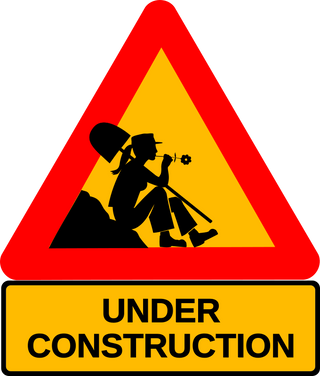Menu

No Yard Waste Pickup? No Problem!
Here are some ideas for how you can handle the lack of yard waste pickup. Toronto suspended, then started again from Apr 6 to Apr 17, its yard waste pickup. Their website says that after this 2 week period of picking up our yard waste they will reassess if they have the staff to continue or not. TO info: htps://www.toronto.ca/home/covid-19/affected-city-services/ In Toronto until further notice the drop off depots are also closed to public traffic. So far Mississauga is maintaining their regular pickups, you can find up to date info here: https://www.peelregion.ca/coronavirus/affected-services.asp#waste
Store It
Contrary to common opinion, paper yard bags actually do stand up fairly well for storage. The secret is to make sure that everything you put into them is dry, and that you don't store them on wet soil. Alternatively, the city will pick up yard waste in open topped bins - such as the old blue bin you've been keeping in your garage. For the last Toronto pick up however the City requested bags only in order for them to be manually picked up. We will have to see what if any changes the future brings.
Practice Chop and Drop
This might just revolutionize your gardening practices. It's so simple, and easy. Cutting down your plants, collecting them, and bagging everything turns out to be quite a chore. Instead, simply chop everything into smaller pieces and let it fall where it will in the garden. This serves several purposes: It creates an instant mulch, it returns the nutrients back to the place they came from, it creates places for beneficial insects to live. It does look a bit messier at first, but after your plants grow up through it, it really isn't at all noticeable. Some things to be careful of: if your plants have any fungal or mildew pests, you should get that out of your garden. For example that white chalkiness that sometimes appears on the leaves of peonies or bee balm, those leaves should be discarded. If your plants are some that you want to keep from self seeding, don't drop their seeds for example you can have columbines or poppies everywhere if you crush up their dried seed pods and scatter them as mulch.
Start a Compost Heap
If you look on the interweb you can undoubtedly find lots of expensive and complicated advice regarding composting. But, at it's heart, composting is simply allowing plant material to break down in the presence of air. If you have a back corner, you can simply pile up yard waste. To help it along, several times a year mix all the material, try to mix new green materials with older brown materials, and possibly add a bit of soil to make sure it is inoculated with microbes to help everything decompose. So long as you aren't adding any food scraps, there should be no concerns about unwanted animals. For more hints about composting try: https://www.motherearthnews.com/organic-gardening/home-composting-zmaz06onzraw For more scientific information about composting try: https://www.livescience.com/63559-composting.html
Look for Specific Uses depending upon the yard waste you have
You can take the left over evergreen branches out of your winter display and use them as mulch, or to protect small plants emerging in the variable spring weather. You can take the tall dried stalks of ornamental grasses and (after removing the seed heads), cut them and use them as straw mulch. In fact, I don't think there is any difference from actual straw. You can use this on your tomato bed, or around your strawberries to retain moisture and reduce weeds. Larger logs that are actually woody can be used as fire wood, and smaller branches as kindling. If you don't have a fire place yourself, perhaps you can find someone who would like to pick up these items.
Just Hold Off on Spring Cleanup
At this time of year many insects desperately need to shelter provided by last year's plant growth. Cleaning up too early leaves them exposed or worse, collects them up and then you inadvertently dispose of them. You may come across various advice suggesting a particular temperature after which it's ok to clean up, but the fact is that insects, both good and bad, live in your garden all year around. In terms of supporting our native pollinators, the best action is as little action as possible.
After a while You Might Not Even Notice
This variation in your practices will be beneficial to your garden. You'll be surprised how little of the ground litter persists. It mostly gets eaten and drawn underground by worms. Here is a great video of how that works. https://youtu.be/n3wsUYg3XV0
Shop Now- Choosing a selection results in a full page refresh.

